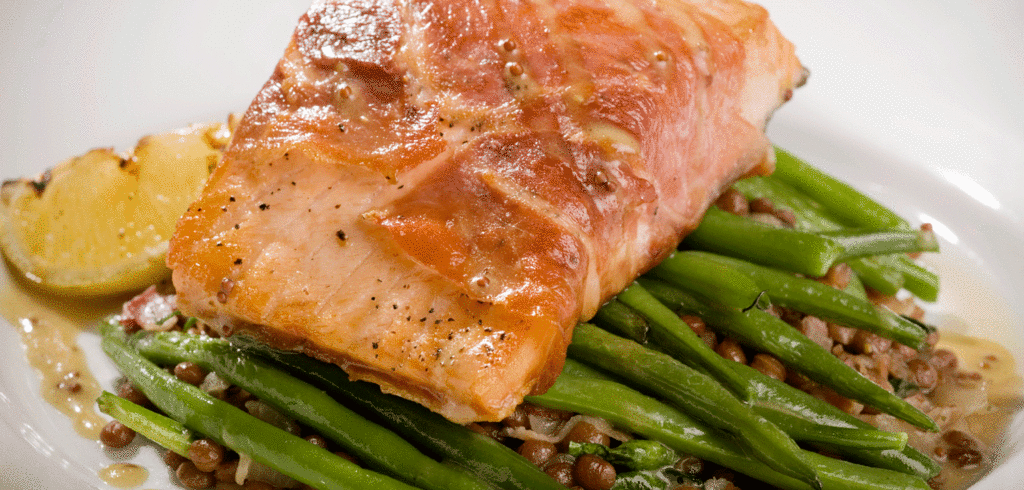Sustain – the alliance for better food and farming – has named Heathrow the world’s first Sustainable Fish Airport.
The award is the outcome of an airport-wide initiative, involving all food and beverage partners across five terminals, from family favourites to fine dining. Every partner at Heathrow has investigated the source of its seafood and committed to removing ‘red-rated’ fish (those considered the least sustainable by the Marine Conservation Society) within the year, ensuring a traceable, sustainable supply chain.
As Europe’s largest airport, catering to over 80 million passengers each year, the impact of this commitment is enormous – covering four million fish meals per year. More than 20 fish species are served across Heathrow, with tuna sold in more outlets than any other species and salmon coming a close second. Both of these have sustainability challenges, so businesses have worked to source from more plentiful stocks, more responsible farms, or caught by pole-and-line, a less destructive fishing method.
As part of this project, the Heathrow food and beverage partners are adopting a sustainable fish buying policy, and for some the influence of this initiative has already rippled beyond the airport itself.
This project is an outstanding example of cross-industry collaboration – involving 37 restaurants and cafes, Sustain, The Sustainable Restaurant Association (SRA) and Heathrow’s senior management team, all working together and sharing information over the past six months.
Commenting on the initiative, Ben Crowley, head of food and beverage at Heathrow, said, “Our partners have demonstrated outstanding commitment to delivering sustainable fish options to every passenger that passes through Heathrow, and we’re immensely proud to be able to offer travellers the very best, while showing that quality and taste need not cost the ocean.
“The full process to reach the accreditation has included revising the sourcing of family favourites, including cod and salmon, so that they meet the highest standards of sustainability; creating new dishes with delicious sustainable species, such as coley; and redesigning menus to make choosing sustainable options clear and easy.”
Ruth Westcott, co-ordinator of the Sustainable Fish Airports campaign, said, “When businesses work together on sustainable fish sourcing, we can achieve great things. Heathrow has proven that airports can be a catalyst for change, and I look forward to the next airport that will step up to the plate and become a leader in tackling overfishing.”


